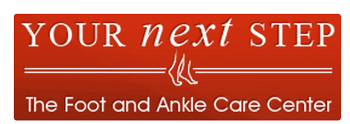
Osteoporosis is a disease that causes your bones to lose more calcium than absorb gradually. It’s typically considered a disease that older adults suffer from, and for the most part, that’s true. But those who experience early onset osteoporosis are often diagnosed before age 50. In observance of National Osteoporosis Month, today Dr. Eric Ricefield, Dr. Mark Yagodich, Dr. Aliza V. Eisen, and Cassandra Stache, DPM of greater Philadelphia’s Your Next Step Foot and Ankle Care Center, explain how it can affect your feet.
The good news is that osteoporosis can be prevented or decelerated with strength training exercises and good nutrition. Even post-diagnosis, some medications may help slow bone loss and resume bone building.
How does osteoporosis affect your feet?
Your feet account for about a quarter of all the bones in your body, which means that osteoporosis is likely to affect your ankles and feet. Because your feet bear the weight of your whole body, more pressure is put on them. As a result, the ankles and feet tend to experience fractures from a small injury (or just from walking) and bone pain at the top of the foot.
5 ways to reduce the risk of osteoporosis:
- Maintain a healthy diet. Stick to a diet that is rich in vitamin D and calcium. Vitamin D is needed for proper calcium absorption into the bones. Certain foods, like fizzy sodas with phosphoric acid and high-sodium prepackaged dinners, can have a negative effect on calcium absorption.
- Exercise often and with weights or resistance. Exercise makes the bones denser and reduces the risk of brittle, weak bones in the future.
- Start young. Understand how to eat well and strengthen your bones and body while you are still an active young adult. Develop healthy habits to carry throughout your life.
- Quit smoking. Smoking has been shown to increase your risk of osteoporosis.
- If it runs in your family, get assessed at your regular physicals. This is particularly important for women starting menopause because hormone changes can affect calcium loss and absorption.
Are you or someone in your family dealing with osteoporosis? It can be passed down genetically, so contact Greater Philadelphia’s Your Next Step Foot and Ankle Care Center.
We will evaluate your feet to determine the right diagnosis and provide the appropriate treatment. You can click here to locate contact information for the nearest office to book your appointment.
